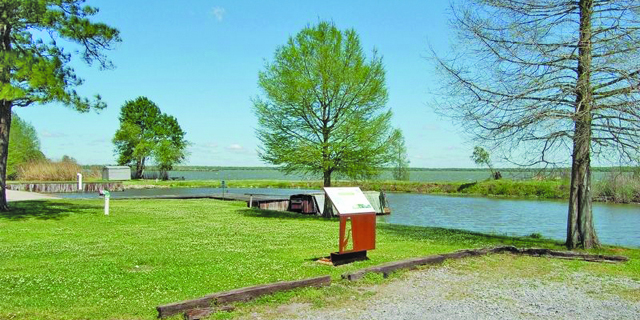Fasting for Lent?
Published 5:00 am Wednesday, March 1, 2017

- Scallops are not the usual fare for South Louisiana but worth experimentation.
Sacrifice in Louisiana has different meanings
Trending
Today marks the end of “party time” in South Louisiana. Mardi Gras season, which started at Epiphany, Jan. 6, is all about the search for the Messiah, but often forgotten in the days leading to Ash Wednesday.
Merriam-Webster Dictionary defines epiphany as a usually sudden manifestation or perception of the essential nature or meaning of something; an intuitive grasp of reality through something (as an event) usually simple and striking; an illuminating discovery, realization or disclosure, a revealing scene or moment.
Lent is a special time of prayer, penance, sacrifice and good works in preparation of the celebration of Easter. According to the Catholic Education Resource Center, in the desire to renew the liturgical practices of the Church, The Constitution on the Sacred Liturgy of Vatican Council II stated, “The two elements which are especially characteristic of Lent — the recalling of baptism or the preparation for it, and penance — should be given greater emphasis in the liturgy and in liturgical catechesis. It is by means of them that the Church prepares the faithful for the celebration of Easter.”
Is the choice of food really the issue for Lenten celebrations? Or, better still, the desire for a greater and deeper knowledge and experience of faith through the denial of fleshly passions or pleasures?
True Repentance
Isaiah 58 speaks of the true fasting beginning with a call to repentance.
Trending
“Shout it aloud, do not hold back. Raise your voice like a trumpet. Declare to my people their rebellion and to the descendants of Jacob their sins. For day after day they seek me out; they seem eager to know my ways, as if they were a nation that does what is right and has not forsaken the commands of its God. They ask me for just decisions and seem eager for God to come near them. ‘Why have we fasted,’ they say, ‘and you have not seen it? Why have we humbled ourselves, and you have not noticed?’
“Yet on the day of your fasting, you do as you please and exploit all your workers. Your fasting ends in quarreling and strife and in striking each other with wicked fists. You cannot fast as you do today and expect your voice to be heard on high. Is this the kind of fast I have chosen, only a day for people to humble themselves? Is it only for bowing one’s head like a reed and for lying in sackcloth and ashes? Is that what you call a fast, a day acceptable to the Lord?
“Is not this the kind of fasting I have chosen: to loose the chains of injustice and untie the cords of the yoke, to set the oppressed free and break every yoke? Is it not to share your food with the hungry and to provide the poor wanderer with shelter — when you see the naked, to clothe them and not to turn away from your own flesh and blood? Then your light will break forth like the dawn and your healing will quickly appear; then your righteousness will go before you, and the glory of the Lord will be your rear guard. Then you will call and the Lord will answer; you will cry for help, and he will say: Here am I,” said Isaiah.
Fasting For Many Reasons
Twenty-five references in the Bible to fasting include King David after his son died. When he realized he could not change the coarse of his son’s life, in sackcloth and ashes he mourned before moving on with his own life knowing, “Now that he is dead, why should I go on fasting? Can I bring him back again? I will go to him, but he will not return to me.”
Queen Esther, having spent a year of preparation to become acceptable with many regulations for being presented to the king, called a fast when her native people were in danger.
“Go, gather together all the Jews who are in Susa, and fast for me. Do not eat or drink for three days, night or day. I and my attendants will fast as you do,” Queen Esther said. “When this is done, I will go to the king, even though it is against the law. And if I perish, I perish.”
She knew it was important to have the blessing of the God of Abraham if she were to successfully petition for the king to spare the lives of the Israelites.
Even Jesus fasted 40 days and 40 nights when he was led into the wilderness to be tested by the devil. If fasting was important for his relationship to Heavenly Father, how much more is a fast for Lent in these days and times?
To Your Health
Regardless of how faith is observed, fasting also is an encouraged practice by healthcare professionals and nutrionists. A word of caution: what and how you fast is dependant on your physical condition. It is important to understand what your body can and cannot take as a fast.
Various cleansing programs are available for liver purifications, colon cleansing as well as the necessary fasting from sweets and carbs for diabetics. Fasting is a component of healthly living.
One Teche Area pastor recently called his congregation to fast the senses. For a week members were encouraged to curtail what the eyes see, what the ears listen to and what the mouth speaks.
Traditionally in Catholic families, Lent means avoiding meat on Fridays during the season. But let’s face it, Southerners forced to eat seafood on Friday hardly constitutes a sacrifice — rather pure enjoyment for the seafood loving residents of the Teche Area. We can’t wait for Lent to come.
Temptation encourages a reverse for today’s recipes — to include only beef — a continuation of the interview with Coy Fitch featured Sunday with the 4-H and new Mardi Gras trail ride. Those recipes can wait until another week.
To support the first week of Lent, new takes on old favorites with seafood are suggested.
As you consider what to fast for the next 40 days, make sure whatever you choose is truly a sacrifice, something that will honor God as you perform the rituals associated with your health or faith routines. However, don’t fast from prayer. It is the most important part of the process.
The book of Hebrews, verses 21 through 23 of the 10th chapter remind us, “Since we have a great priest over the house of God, let us draw near to God with a sincere heart and with the full assurance that faith brings, having our hearts sprinkled to cleanse us from a guilty conscience and having our bodies washed with pure water. Let us hold unswervingly to the hope we profess, for he who promised is faithful.”




